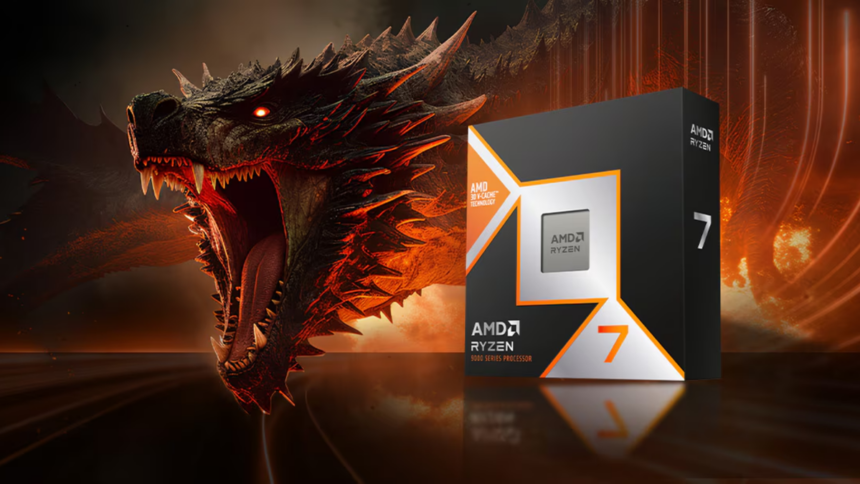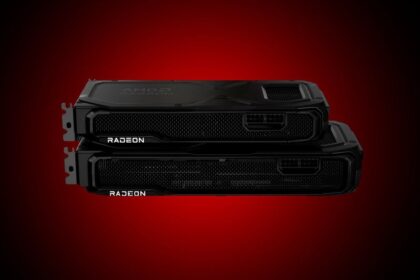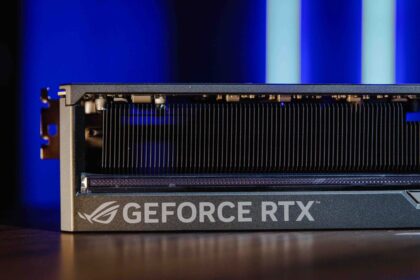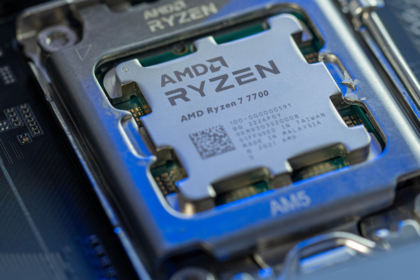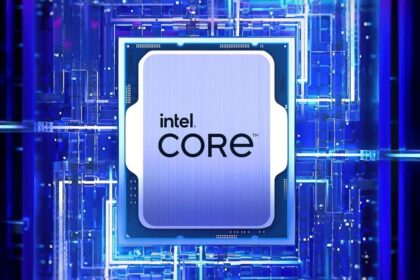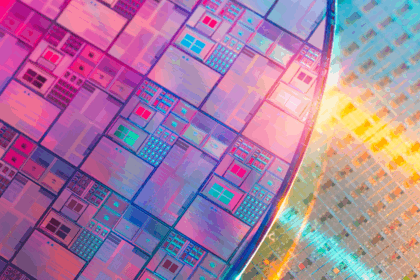The Ryzen 7 9800X3D has hit the market and quickly earned the title of the best gaming processor in numerous global reviews. This success story began back in April 2022 with the launch of the Ryzen 7 5800X3D, which introduced AMD’s innovative 3D V-Cache technology. Since then, the series has evolved, featuring several models like the Ryzen 7 7800X3D.
The standout feature of 3D V-Cache is its hardware stacking technology, which increases the amount of L3 cache memory while boosting data speeds. By reducing communication latency, this technology significantly enhances overall processor performance, making it a top choice for gamers seeking high efficiency and smooth gameplay.
The early trajectory of 3D V-Cache technology
The biggest advantage of 3D V-Cache technology has consistently been its impact on gaming performance, first evident with the launch of the Ryzen 7 5800X3D. This model quickly became the top choice for gamers, even outperforming Intel’s flagship Core i9-12900K at the time.
While other CPUs in the Ryzen 5000 series (Zen 3) later received the X3D treatment, none made as strong of an impression as the 5800X3D. The closest contender was the Ryzen 7 5700X3D, which offered similar specs but couldn’t quite match the popularity and performance boost of the 5800X3D.
| Technical specifications | |||
| Processor | Ryzen 7 5800X3D | Ryzen 7 7800X3D | Ryzen 7 9800X3D |
| Architecture | Zen 3 | Zen 4 | Zen 5 |
| Cores/threads | 8/16 | 8/16 | 8/16 |
| Base/boost clocks | 3.5/4.5GHz | 4.2/5.0GHz | 4.7/5.2GHz |
| L3/L2 cache | 96MB/4MB | 96MB/8MB | 96MB/8MB |
| Integrated video | No | Yes | Yes |
| Platform | AM4 | AM5 | AM5 |
| TDP | 105W | 120W | 120W |
| Launch price | $449 | $449 | $479 |
A year later, AMD expanded its 3D V-Cache technology beyond the Zen 3 architecture, transitioning to the more advanced Zen 4. The first processor to feature this was the Ryzen 7 7800X3D, the natural successor to the highly successful Ryzen 7 5800X3D, which had already set a high standard for gaming performance.
AMD initially claimed that the 7800X3D would deliver up to 30% better gaming performance than its Zen 3 predecessor. Independent testing by tech reviewers confirmed these predictions, showing that it had become the new top choice for gamers, outperforming even Intel’s **Raptor Lake** series in head-to-head comparisons.
Ryzen 7 9800X3D and the second generation of stacked cache
The Ryzen 7 9800X3D is officially out, and early reviews suggest it’s already making waves as the best gaming processor available. But what exactly sets it apart? Let’s dive in.
This new chip from AMD features second-generation 3D V-Cache technology. While AMD hasn’t shared many specifics about what’s new under the hood, there’s a significant shift in how the cache is integrated.
In previous versions like the Ryzen 5000X3D and 7000X3D, the extra cache was placed on top of the core complexes (CCDs). This was evident when enthusiasts took apart the CPU. However, with the Ryzen 7 9800X3D, AMD has moved the 3D cache below the CCD, marking a fundamental change in design.
Benefits of This New Design
- Higher Clock Speeds: Placing the cache beneath the CCD improves heat dissipation, allowing the processor to achieve higher clock speeds without running too hot.
- Better Overclocking: Previous X3D models had limited overclocking capabilities due to thermal constraints. The new layout opens up more room for enthusiasts to push the processor further, enabling more extreme overclocking.
- Upgraded Zen 5 Architecture: On top of the cache improvements, the Ryzen 7 9800X3D benefits from the next-gen **Zen 5 architecture**, which brings better efficiency and performance.
With its improved cache design, increased clock speeds, and advanced architecture, the **Ryzen 7 9800X3D** has set a new standard for gaming CPUs. It delivers superior performance, making it a go-to choice for gamers looking for the best experience possible in 2024.
Consumption doubled compared to the Ryzen 7 7800X3D
While the Ryzen 7 9800X3D sets a new benchmark for gaming performance and offers robust overclocking capabilities, it also comes with a notable downside: increased power consumption.
Tests from TechPowerUp, Tom’s Hardware, and The Verge reveal a significant jump in power usage compared to its predecessor, the Ryzen 7 7800X3D:
- In Blender (a popular 3D rendering application), the Ryzen 7 9800X3D consumes up to 155W with all cores active, more than double the 74W used by the 7800X3D.
- During gaming tests, such as in Black Myth: Wukong, the new chip hits 131W, far exceeding the 63W of its predecessor.
- On average, in gaming scenarios, the 9800X3D draws around 65W, which is 21W higher than the 7800X3D.
The increased power consumption directly affects the temperatures of the processor, especially under heavy workloads. The differences in heat generation are notable:
- Under full load, the 9800X3D can run up to 11°C hotter than the 7800X3D.
- In gaming tests, results vary. In Cyberpunk 2077, the 9800X3D was a 9°C cooler, but in Black Myth: Wukong, the 7800X3D ran a 6°C cooler, according to The Verge.
It’s important to note that temperature readings can be influenced by many factors, such as cooling solutions, thermal paste quality, case airflow, and ambient room temperature. Generally, higher power draw generates more heat, potentially limiting the processor’s thermal headroom if not properly managed.
Despite the higher power and heat, the Ryzen 7 9800X3D brings significant performance gains, especially for users upgrading from older models like the Ryzen 7 5800X3D on the AM4 platform. However, this upgrade also requires a new AM5 motherboard and DDR5 memory, making it a more substantial investment.
In summary, while the Ryzen 7 9800X3D offers unmatched gaming performance, it comes at the cost of higher power usage and heat output. Enthusiasts should ensure an adequate cooling setup and be prepared for the extra power demands. For those making the leap from older platforms, the performance boost can be well worth the investment.

